
Adriana Muro Polo
Adriana is a lawyer from the Ibero-American University, Mexico City, with a Master’s Degree in Human Rights and Democratization from the Externado University of Colombia. She studied the Advanced Studies Program in Human Rights of the American University and the Diploma of Drugs, Human Rights and Health of the CIDE. Professionally, she has worked as an intern in the Inter-American Court of Human Rights and NGOs in Mexico and Colombia. She has been a human rights professor and coach of international competitions in both countries. Her areas of expertise are International Human Rights Law, Constitutional Law, Gender and Drug Policy. She is founder of Elementa, Consultancy in Rights.
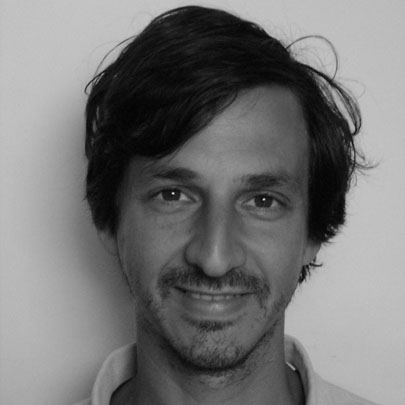
Alejandro Corda
He is a lawyer by the University of Buenos Aires (UBA) since 1998. He is also a professor and researcher at the UBA. He has worked in the National Judicial Branch since 1993, and since 2001 has been the Secretary of the Federal Criminal Court. He is a member of Intercambios Civil Association. It is also a member of the Collective Study of Drugs and Law (CEDD) that brings together researchers from Latin American countries.
He has made different publications individually and jointly on drug policies, including “Failed strategy, imprisonment for crimes related to narcotics in Argentina” (Intercambios – UBA, 2016) and “People who use narcotics in Argentina. -we feel ‘subjects of rights’ (Intercambios – UBA, 2014).
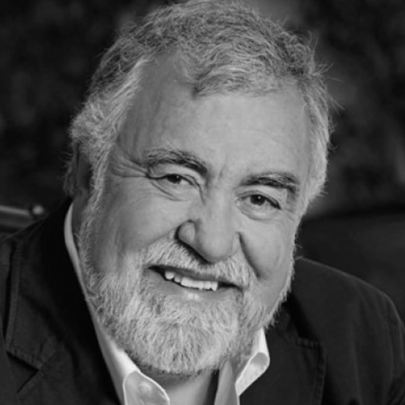
Alejandro Encinas
Proposed as next Sub Secretary of Human Rights, Population and Migration.
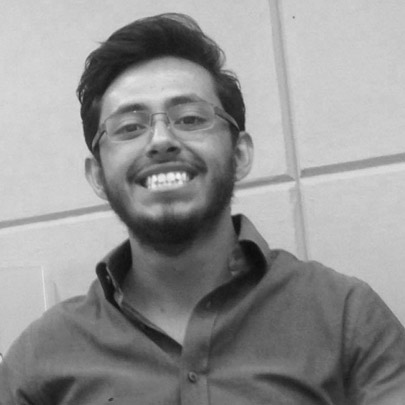
Alejandro Pocoroba
Student of the Master’s Degree in Public Action and Social Development at El Colegio de la Frontera Norte (COLEF), Ciudad Juárez, Chihuahua. In addition, it collaborates with the Drug Policy Program of the Center for Economic Research and Teaching (CIDE) Centro Region.
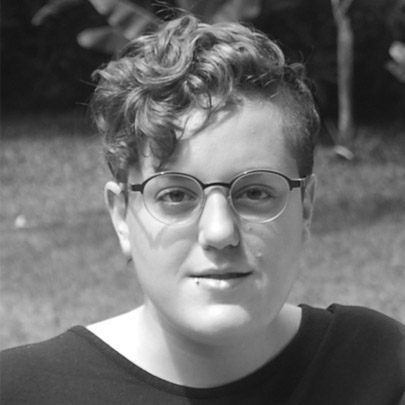
Amaya Ordorika
She is intern of the degree in Sociology in the Faculty of Political Sciences of the National Autonomous University of Mexico. She is Coordinator of the area of incidence of ReverdeSer Collective, a youth organization that seeks to promote a transformation in the current drug policy. She worked as a researcher in human rights and drug policy in the Mexican Commission for the Defense and Promotion of Human Rights for three years.
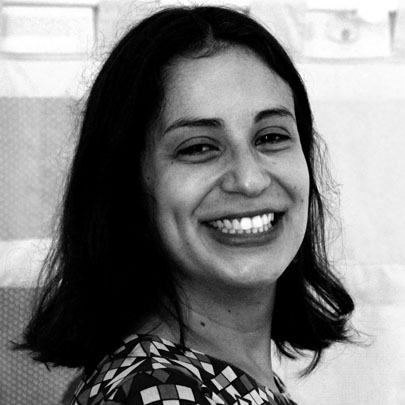
Ana Lucia Marinho Marques
Occupational therapist of the Department of Physiotherapy, Phonoaudiology and Occupational Therapy of the Faculty of Medicine of the University of São Paulo, has a Master of Science (USP) and a specialty in Dependencies (UNIFESP). Doctorate in course in Preventive Medicine (USP). Member of the Colectivo Intercambiantes Brasil.
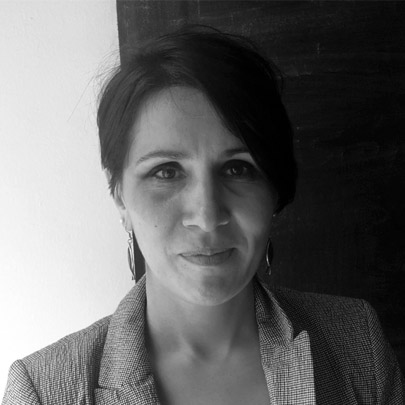
Ana Pecova
Magister in Philosophy Politics of the University of York in England, and Diploma of Research on issues of transparency and access to information at the London School of Economics.
Executive Director of EQUIS Justice for Women, Ana has been working in the field of human rights for more than 15 years.
She has been a consultant for several international organizations, and has lived and worked in different countries around the world. Before coming to Mexico, she worked as a researcher for the international organization Interpeace, supporting the processes of conflict resolution and reconciliation in the Balkans with a special focus on gender.
She worked in the office of the Ford Foundation for Mexico and Central America, supporting projects in women’s human rights, migration and art programs.
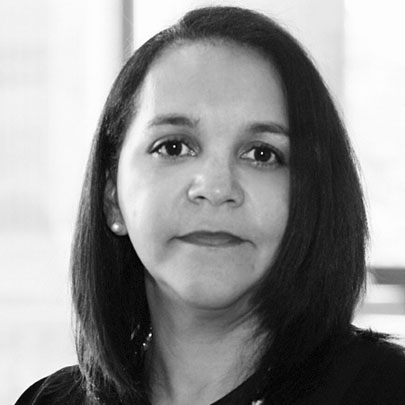
Andrea James
Andrea James is the Founder and Executive Director of the National Council For Incarcerated and Formerly Incarcerated Women and Girls, Founder of Families for Justice as Healing, author of Upper Bunkies Unite: And Other Thoughts on the Politics of Mass Incarceration, a 2015 Soros Justice Fellow, and recipient of the 2016 Robert F. Kennedy Human Rights award.
As a former criminal defense attorney and a formerly incarcerated women Andrea shares her personal and professional experiences to raise awareness of the affect of incarceration of women on themselves, their children and communities. Her work is focused on ending incarceration of women and girls as we know it today, andcontributing to the shift to a justice system led by community solutions.
Andrea Portilla Demichelis
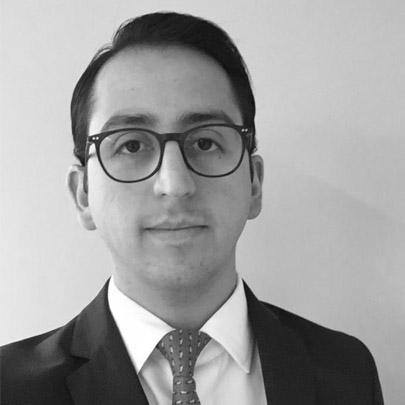
Andrés Aguinaco
Lawyer specialized in constitutional and human rights litigation. He is a member of the Aguinaco Abogados law firm, as well as a founding partner and president of the CEIS Foundation – Strategic Social Impact Center, A.C. that specializes in strategic litigation of human rights.
He is the author of the main cases at the national level regarding the personal and medicinal use of cannabis such as Graciela Elizalde Benavidez. Also, author of the application for amparo in the SMART trial among other three trials resolved by the Supreme Court of Justice of the Nation, in which the right to the personal use of cannabis for nine Mexicans has been recognized.
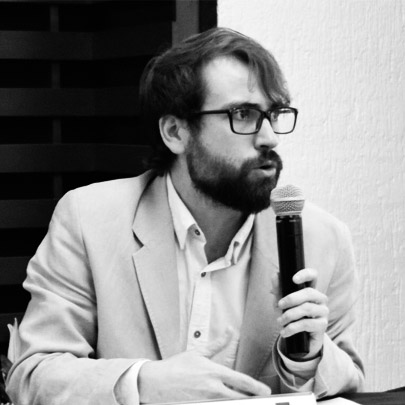
Ángel M. Salvador Ferrer
Lawyer with a Master’s Degree in International Studies from the University of Barcelona. Diploma in Proceedings before International Tribunals by the Center for Latin American Socio-Legal Studies; as well as in Drug Policy, Health and Human Rights by the Center for Economic Research and Teaching. He is Coordinator of the Program for the Prevention of Torture in Documenta and coordinates a project to transform the mental health system in Mexico. He has been a professional visitor at the Inter-American Court of Human Rights and intern at the Inter-American Institute of Human Rights, in Costa Rica. He has worked as a researcher in the Colombian Commission of Jurists. He has collaborated in Mexico with several human rights organizations and has served as a consultant on drug policy in the region. He is a member of the group of evaluators of the International Catalan Institute for Peace and has published several articles and manuals on human rights.
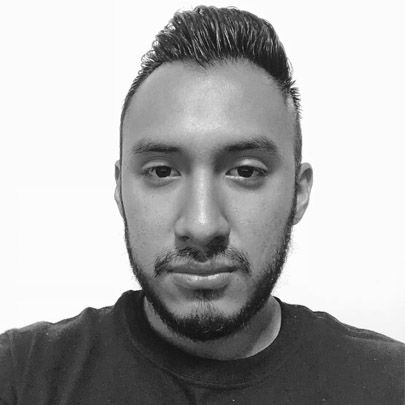
Ángel Soriano Ruiz
For the last 5 years he has been working with populations in street situations. He spent three years as a street educator applying educational methodologies to promote human rights and making personalized accompaniments to facilitate the community inclusion of populations in street situations.
He has been part of civil society organizations such as: Civic Alliance, Civic Proposal, Espolea, in which he has generated information materials on human rights. He was also part of the construction of citizen campaigns such as “Stop the smuggling of weapons” and “Get off now.” It is part of the Padron of young researchers from the Research Seminar of the National Autonomous University of Mexico and the second citizen observatory of human rights of youth in Mexico City.
He participated in national and international congresses on human rights of youths. He is a certified trainer by the CONOCER on behalf of the Ministry of Public Education.

Angela Guerrero Alcántara
Angela has a Master’s Degree in Political Sociology from the Jose María Luis Mora Institute, Degree in Political Science from the Autonomous Metropolitan University-Iztapalapa. For three years she was in charge of the Substance Control Area of the Right to Health Program of the Center for Economic Research and Teaching (CIDE), coordinated by Dr. Alejandro Madrazo Lajous. She has several academic and journalistic publications in Nexos, El Universal and Horizontal about gender, drug policy and security in Mexico. For two years she was a human rights advisor in the Government Secretariat of Mexico City and is currently responsible for strategic projects in the Social Rehabilitation Institute of Mexico City.
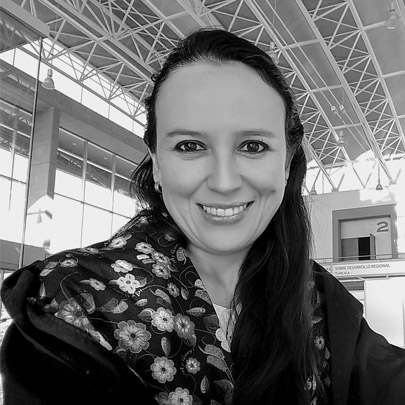
Angélica Ospina
PhD in Population Studies and has a master’s degree in demography. He is currently doing his postdoctoral research at the Institute of Social Research of the UNAM on the socio-emotional register in males who inject drugs. He is a founding member of the Mexican Network for Harm Reduction (REDUMEX). His line of research is problematic drug use from a sociodemographic perspective.
Astron Martínez
Astron is a scientific broadcaster and an editorial Coordinator of the Advanced Materials magazine of the UNAM, represented Mexico in the 40th International Chemistry Olympiad in Hungary. He is President of DiVU A.C. and the representative of the CDMX in the National Congress of Mexicans LGBTIQ.
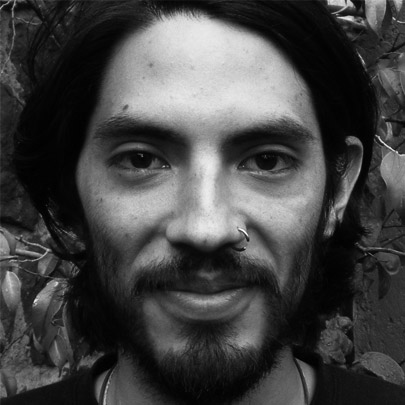
Brun González
Brun is a young Mexican activist involved in drug policy since 2009. He is currently part of the Mexican organization ReverdeSer Colectivo and works as a peer educator within the Youth Institute of Mexico City developing campaigns on harm reduction and drug policy reform.
He has participated in the creation of several projects and initiatives for both the use of injected and non-injected substances such as the Substance Analysis Program (PAS) and the nightlife interventions that are being implemented in Mexico and other countries in the region, the huge database on psychoactive substances in Spanish, The Universe of Drugs, and the notorious campaign whose face is a puppet named Lugo, who talks about harm reduction for younger audiences through the Internet.
He is the chairman of the INPUD board of directors, the regional representative of LANPUD and participates in different groups of United Nations offices such as the New York NGO Committee and the Drugs Civil SocietyGroup with UNODC and the StrategicAdvisoryGroupon HIV and Drug Use with ONUSAIDA, WHO and UNODC.
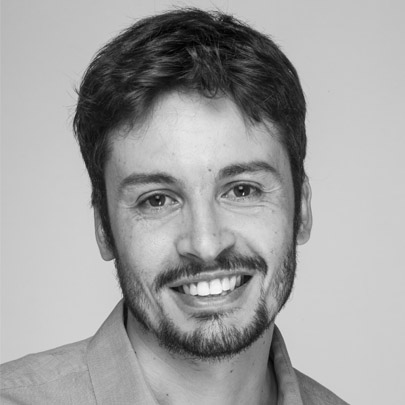
Bruno Langeani
Bachelor in International Relations from the Pontificia Universidad Católica de São Paulo and Law from Mackenzie Presbyterian University with a specialization in management of civil society organizations by AMBAFIA. He is coordinator of the Security and Justice Systems area of the Sou da Paz Institute in São Paulo, Brazil. Their tasks are linked to research, monitoring and advocacy activities in the area of arms control and public security along with the National Congress, dialogue with the Federal Government and State Governments for the development of pilot projects, evaluation and implementation of public policies on strategies of police in the area of Security and Justice.
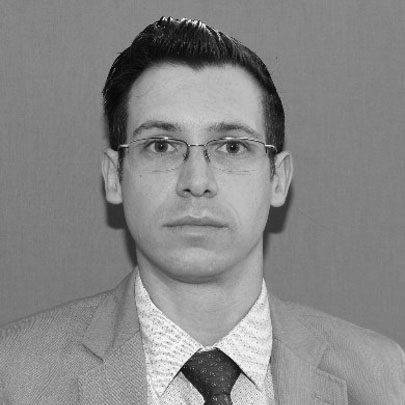
Bryce Pardo
Pardo holds a doctorate of philosophy in public policy from the University of Maryland, College Park. He also holds an M.A. in Latin American studies and a B.A. in political science from the George Washington University.
Is an associate policy researcher at the RAND Corporation. His work focuses on drug policy with a particular interest in the areas of cannabis regulation, opioid control, and new psychoactive substance markets. He has over ten years of experience working with national, state, and local governments in crime and drug policy. Prior to joining RAND, he served five years as a legislative and policy analyst at the Inter-American Drug Abuse Control Commission (CICAD) within the Organization of American States (OAS) where he worked directly with policymakers and practitioners. He has independently consulted with multi-lateral institutions, including the Pan-American Health Organization (PAHO) and the United Nations Office on Drugs and Crime (UNODC). Pardo also served as lead analyst with BOTEC Analysis Corporation to support the Government of Jamaica in drafting medical cannabis regulations. Pardo has years of experience in data science (programming in R and STATA), quantitative analysis, econometric modeling, writing descriptive analyses, and literature reviews. He has experience conducting qualitative research, including stakeholder interviews, and survey design and analysis. His research and academic works have been published in the International Journal of Drug Policy, Addiction, Lancet Psychology, Criminology and Public Policy, and reports for the London School of Economics, UNODC, PAHO, and the National Academy of Sciences.
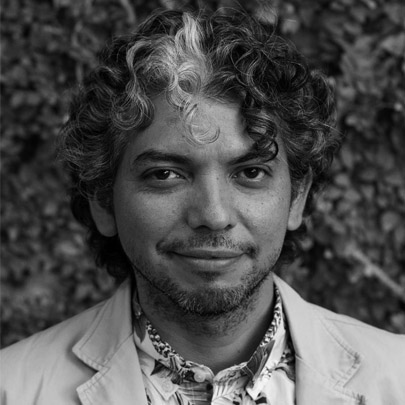
Carlos Alberto Zamudio Angles
Ethnologist. Specialist in Social Medicine. Researcher of the Collective for an Integral Policy towards drugs. Editor of the newspaper La Dosis and Consultant on drug policies. Author of the book Las Redes del Narcomenudeo (Ceapac, 2012), of the First Survey of Drug Users in Mexico City 2012 and of various articles on users of illicit drugs, illegal markets and human rights; among them: “Abuses in Treatment Centers with Internment for Drug Users” (Cupihd, 2015).
Carlos is an advisor of the Special Report on Drugs and Human Rights in Mexico City 2012-2013. He won the Fray Bernardino de Sahagún Award (2008), by the National Institute of Anthropology and History. Scholar of the Social Science Research Council, 2015-2016.
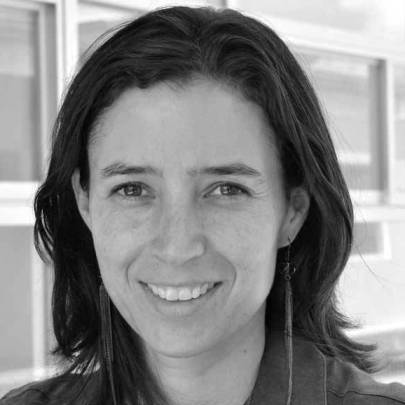
Catalina Pérez Correa
Catalina has a Law Degree from the Autonomous Technological Institute of Mexico (ITAM) and a Master’s degree and Doctor of Laws from the law school of Stanford University in California. She is a research Professor of the Legal Studies Division of the Economic Research and Teaching Center (CIDE).
Her research focuses on the study of legal institutions from an interdisciplinary and empirical perspective, focusing mainly on the study of criminal justice enforcement institutions, the conditions of observance of legal norms, the application and effects of criminal punishment, among other themes. Among her publications are: The law of space: architecture and other ways of regulating behavior; Front desk justice: inside and outside criminal procedure in Mexico City; Transparency and law enforcement in the Federal District; From instrumentalism to voluntary compliance with the law; among other.
Currently, Dr. Pérez Correa is a member of the Drug Policy Program (PPD) of the CIDE and Coordinator of the Collective of Studies on Drugs and Law (CEDD); her studies focus on the functioning of the criminal justice system, drug policy in Latin America and the observance of social and legal norms.

Cleia Noia
Is the program manager of the Drugs, Security and Democracy Program. She received her law degree from Universidade Presbiteriana Mackenzie in Brazil and her master’s degree in law and diplomacy, with a focus on international development and human security, from the Fletcher School at Tufts University. Prior to joining the Council in February 2014, Cleia worked as a corporate lawyer in Brazil and consulted on Brazil’s drug policy for the Open Society Foundations.
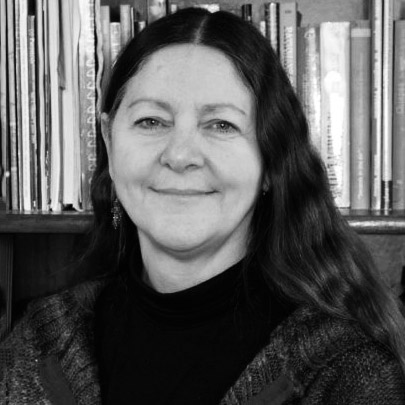
Coletta Youngers
Coletta Youngers is an analyst on issues of democracy, human rights and politics in the Andean region, and on US policy regarding the region, including the international drug policy.
She is currently an independent consultant, Senior Advisor in the Washington Office for Latin American Affairs (WOLA), representative of the International Drug Policy Consortium (IDPC) and a member of the Collective of Drug Studies and Law (CEDD). Collaborates with a WOLA project on drug policy reforms in Latin America and coordinates a working group on women, drug policy and incarceration in Latin America. Youngers has served as the representative and then director of the WOLA Andean Program from 1987 to 2003. She was also director of the WOLA project on drugs, democracy and human rights until 2004.
Youngers is co-editor of Drugs and Democracy in Latin America: The Impact of US Policy, published by Lynne Rienner Publishers and Editorial Biblos, and author of Political Violence and Civil Society in Peru: History of the National Rights Coordinator Humans, published by the Peruvian Studies Institute of Lima, Peru.

Corina Giacomello
PhD in Latin American Studies from the National Autonomous University of Mexico. She currently works as a researcher for the Legal Research Institute of the Autonomous University of Chiapas (Mexico) and cooperates with the organization Equis: Justice for Women.
She is an expert on the subject of women in prison for drug offenses, linking the study of drug policies with the prison system from a gender perspective.
Among his publications are “Drug policy, gender and imprisonment in Mexico: a guide for inclusive drug policies”, (2017, co-authored with Isabel Blas and Isabel Erreguerena), Women deprived of freedom and the right to vote . From objects of standards to subjects of Citizenship (2016), and Drugs, gender and prison: Experiences of women deprived of their freedom in Mexico (2013) by Tirant Lo Blanch.
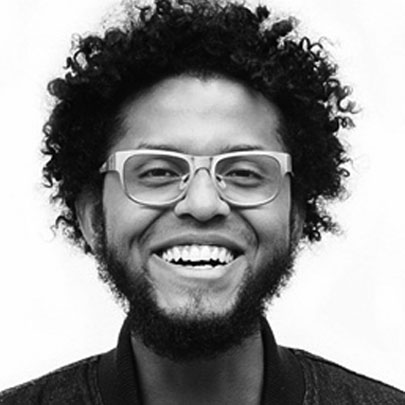
Daniel Gomez Mazo
Lawyer of the EAFIT University (Medellin), he has a LL.M. in Critical Racial Studies and Law and Sexuality at the University of California (Los Angeles), and is a Ph.D. candidate in Law (S.J.D.) from Fordham University (New York) and Fulbright Scholar. Daniel has worked as a researcher and lawyer in human rights organizations in Colombia on issues related to LGBT and afro-descendant rights, and is a founding member of Ilex-Acción Jurídica, a civil society organization dedicated to working on issues of racial justice and human rights.
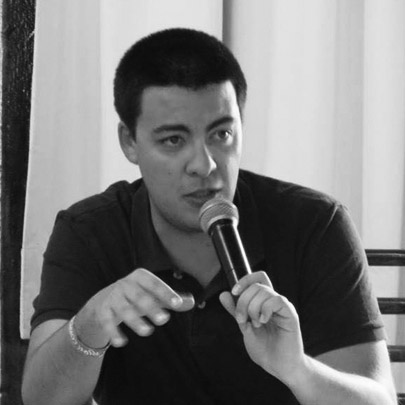
Daniel Gudiño Pérez
Daniel is an Internationalist from the Universidad San Francisco de Quito (2009), with a specialization in Political Science and a Master’s Degree in International Negotiation and Conflict Resolution from the Universidad Andina Simón Bolívar based in Ecuador (2011).He is an associate researcher at Parametría Consultores on issues of international drug policy, regulatory models, harm reduction and proposals for reforms to political drug systems. He was Project Director for the Friedrich-Ebert-Stiftung (FES) in the Ecuador office from 2011 to 2018, in charge of the issues of drug policy, security and international relations. Daniel is currently studying his doctorate in the Social Dimensions of Health Program at the University of Victoria in Canada.
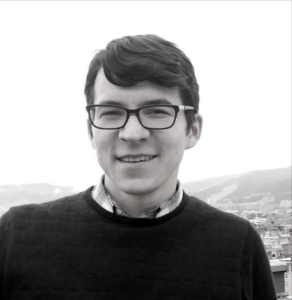
David Villanueva Acuña
Economist from the University of Tolima, with a master’s degree in economics from the Pontificia Universidad Javeriana in Bogotá. Co-founder and coordinator of the urban planning and right to the city area of the Center for Thinking and Action for the Transition CPAT. Researcher in matters related to urban planning, territorial planning and regional and urban planning among others. In the CPAT has explored the relationships that are woven between the policies of production and renovation of urban spaces and the dynamics of spatial segregation in Latin American cities, an issue in which the right to the city is linked to the reform in drug policy, post that the war against drugs has been used as an instrument for intervention in urban spaces in cities for the purpose of urban renewal.
Dawn Harrington
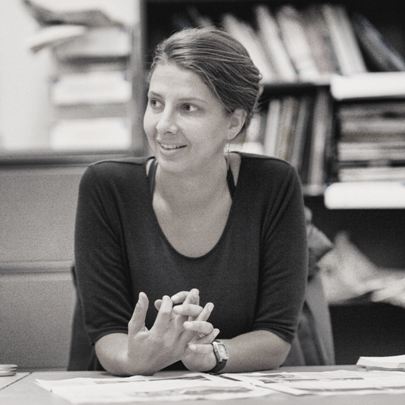
Dawn Marie Paley
Journalist and sociologist. She is the author of Anti-Drug Capitalism: A war against the people. She has been walking for two years with Grupo Vida, a family group of disappeared people who carry out land searches in Torreón, Coahuila.
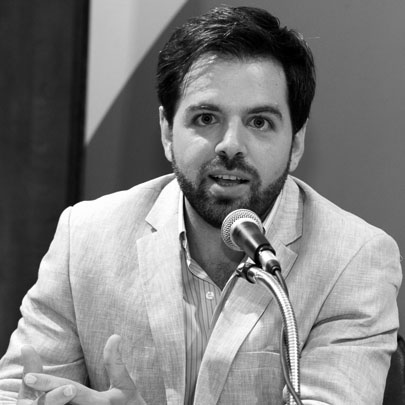
Diego Olivera Couto
He graduated with a degree in Social Work, from the Faculty of Social Sciences of the University of the Republic in Uruguay.
By order of the President of the Republic, Dr. Tabare Vazquez, he was appointed Secretary General of the National Drug Board, a position he has held since July 1st, 2016.
His professional works includes the development, planning and management of public policies. In this field he has managed to bring his training in social service with the development of specific skills in academic, institutional and political field.
Between 2012 and 2016 he was the General Coordinator of the Youth Network Program Ministry of Social Development, where he participated in a development program dedicated to the care of young people who do not study, do not work and focuses on other indicators of vulnerability. He was Youth and Social vulnerability Coordinator at the National Youth Institute, which implemented policies public aimed at young people in situations of social vulnerability.
Between 2002 and 2012, he participated in various programs of the NGO “The Abrojo” National Public Education Administration, Fundación Telefónica – ORT, focusing on the individual, family and community approach to socio-educational level to change harsh living conditions.
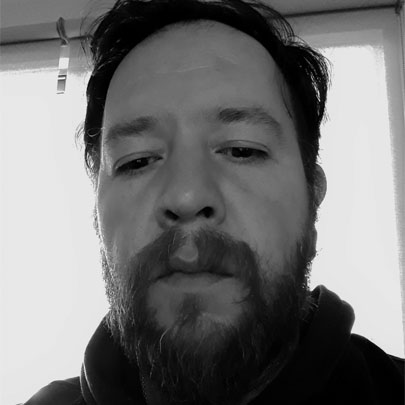
Diego Piñol Arriagada
Sociologist and PhD in Psychology, he has studied Master in Anthropology and has diplomas in crime prevention and violence at the community level, with young people and children.
Researcher of the Citizen Security Studies Center of the University of Chile and member of the CEDD.
He has conducted more than 50 research and evaluations of public policy in health, education, crime prevention and violence, prisons and drugs. In this last area he has conducted longitudinal studies of drug treatment, developed evaluation instruments in treatments, evaluated the drug courts in Chile and preventive programs of problematic use.

Eduardo Zafra Mora
Social Anthropologist by the National School of Anthropology and History. Eduardo is an audiovisual documentary maker and ethnographer on the subject of addictions and youth. He is founder and president of SEISYC AC, “Specialized Services in Social and Cultural Research Civil Association” and for 18 years has been developed in research projects from photography, film, video, graffiti, music and drug trafficking. Winner of the Crystal Screen Prize with the documentary “Beyond the Volcanoes: Popocatepetl and Iztaccihuatl” 2005, and PACMYC 2006 prize.
He has done research for the University of Southern California, University of Houston, Juan Ramón de la Fuente National Institute of Psychiatry, Institute of Attention and Prevention of Addictions IAPA, the Ministry of Public Education and the Human Rights Commission of the Federal District. He coordinated the binational Mexico-United States project: HIV Projection Mapping With Crack Users in Mexico City, funded by the Bill & Melinda Gates Foundation and the Gonzalo Río Arronte Foundation and is a member of the National Hispanic Science Network since 2014.
Eduardo is currently director of field work in the project: “Diagnosis of Heroin Consumption on the Mexico-United States Border: Dimension and Context” of the National Institute of Psychiatry Ramón de la Fuente Muñiz.

Emma Rodríguez
Emma has a degree in Political Science and Public Administration from the National Autonomous University of Mexico. She is a student of the Master in Public Policies at the Metropolitan Autonomous University Xochimilco Unit and Member of the board of Students for Sensible Drug Policy. She is also a founder of the organization “Students for a Sensible Drug Policy, Mexico”

Eneida Puleri
Political scientist at the University of New York (NYU) in Political Science and Economics. Trilingual researcher on issues related to Drug Policy and with extensive experience in research and project management. She works as a Project Assistant for the Acción Semilla Foundation in the city of La Paz (Bolivia).
She is co-author of Comparative Experiences: Microtrafficking and Legislative Thresholds of Bolivia-Ecuador: Progress in the UNASUR Perspective, published by Acción Semilla and FES (March, 2018). Co-designer and coordinator of the KUYMI Cultural Center project. Apprentice of traditional Andean-Amazonian medicine, and co-founding member of Ayllu Qollañan, a community organization for the restitution and transmission of philosophy and ancestral practices of healing, through seminars, workshops and ceremonies.
Currently, she investigates the medicinal uses of Master Plants (Ayahuasca, Wachuma, Tabaco and Willka), having praxis and Andean-Amazonian ancestral thinking as an alternative of critical thinking.
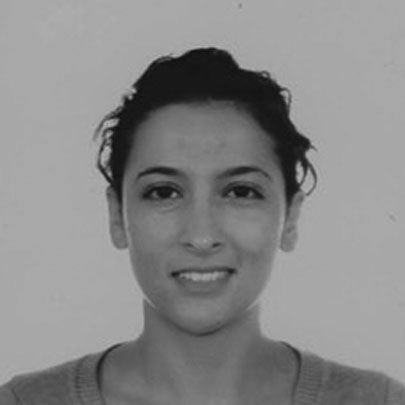
Estefania Ciro Rodríguez
Estefanía is a Researcher at the Thinking Center of the Colombian Amazon, AlaOrillaDelRío and a winner of the UNESCO Juan Bosch Prize for the promotion of Research in Social Sciences in Latin America and the Caribbean, 2018. Economist from the Universidad de los Andes in Bogotá, master’s degree in History at the same university and graduate with honorable mention of the Doctorate in Sociology of the Postgraduate Program in Political and Social Sciences of the National Autonomous University of Mexico with a research on the life trajectories of coca growers in the Colombian Amazon and the legitimacy of coca cultivation in the context of poverty, violence and prohibitionist drug policy. Investigate coca, rural communities and the construction of the state in Latin America. Study the process of implementation of the peace agreements between the Santos government and the FARC.

Fany Pineda
Psychologist by the faculty of psychology of the National Autonomous University of Mexico, Diploma in “Psychoanalytic Psychopathology” by the Eleia Center, psychological activities.
Since 2012 she has worked in drug policy, especially in the development and implementation of strategies to reduce risks and harms aimed at young students, families, vulnerable populations and users of psychoactive substances. She is currently Coordinator of the Innovation and Learning area in ReverdeSerColectivo.
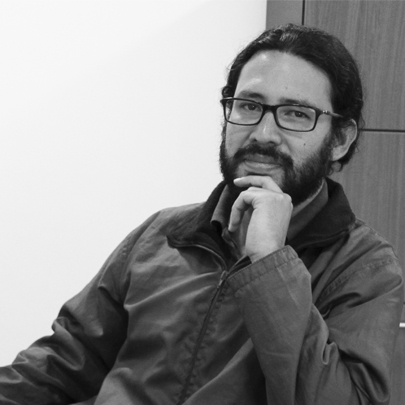
Francis Negrete A.
Sociologist with a mention in Political Science from the Pontificia Universidad Católica del Ecuador, aspiring to master in Public Policy Research for Comprehensive Drug Prevention by the Institute of National High Studies of Ecuador, and member of the Research Group on Drugs of Ecuador (GIDE).

Froylán Manuel Rascón Barajas
Ex-student of Catalyst 2018 and currently studying his last year of high school at the College of Sciences and Humanities Plantel Sur. In the last two years, he has developed, together with other youth of the CCH-South, various political and cultural spaces to question, think and analyze the role of Mexican youth in the growing context of violence generated by the war on drugs in Mexico.
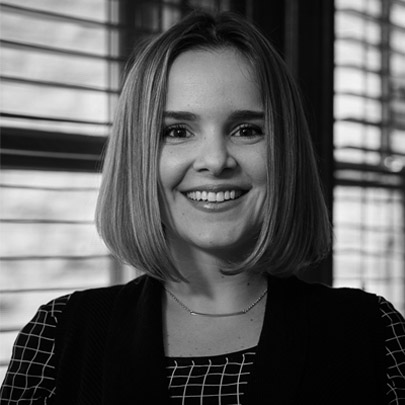
Gabriela Barros de Luca
She holds a Master of Laws in International Human Rights Law from the University of Essex, and an LLB from Pontifical Catholic University of Sao Paulo.
She I a program officer with the Open Society Public Health Program, where she works with grantees to promote the right to health through legal research, advocacy, and strategic litigation.
Prior to joining Open Society, she worked as a staff attorney for the Center for Justice and International Law in Brazil, where she focused on litigation in the Inter-American Human Rights System. Before that, she worked for the Access to Justice and Rule of Law program of the United Nations Development Program in East Timor.

Genaro Lozano
Genaro is a politologist and an Internationalist. He writes in the Reforma newspaper. He is a professor at the Ibero-American University and host of the Global Forum.
Giselle Amador
Gloria Rose Achá
Guilherme Fernandes de Melo
Guilherme is an historian formed by the Federal University of Minas Gerais and a member of Foro Mineiro de Mental Health and member of the DH Institute: Promotion, Research and Intervention in Human Rights and Citizenship.
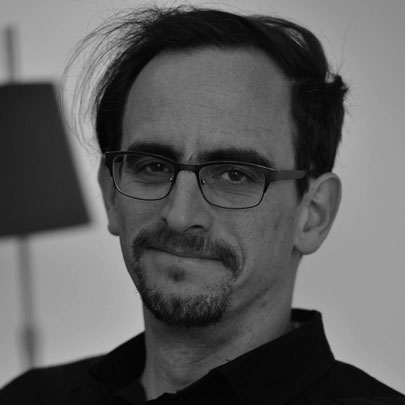
Guillermo Garat
Since 2012, he has accompanied the cannabis regulation process in Uruguay, has published two journalistic essays: “Marijuana and other herbs: regulation and use of drugs in Uruguay (Debate, 2012), and” El Camino: how cannabis was regulated in Uruguay according to its political and social actors “. (FES, 2014).
He has edited the book “On the other side: chronicles and reports on people and drugs in Ecuador” (FES ILDIS, 2017) and several policy brief on drugs in Uruguay. Also “Paraguay: the hidden land. Examination of the largest cannabis producer in South America ” (FES, TNI, 2016).
As a journalist he worked in several newsrooms in Uruguay. He is a freelance in newspapers, magazines and television in America and Europe.
Guillermo J. Escaño
Guillermo is a graduate student in the Criminal Justice Department of the University of Albany, State University of New York. Before graduating, he was a research assistant at the New York University School of Medicine and evaluated the quality of public health in public housing in the Lower East Side. Most recently, he worked as a case manager in an alternative to the bail bond program with Brooklyn Justice Initiatives (Center for Care Innovation). Guillermo aspires to continue his doctorate in criminal justice and continues his academic research in: causes of violence / homicide; organized criminal groups; humanitarian drug policies; and intersectionality of public health and the criminal justice system. Guillermo has a B.A. in Political Science and Latin American Studies from Lehman College, City University of New York.
Gustavo Bolívar

Henrique Apolinario
Lawyer of the institutional violence program of Conectas Human Rights since 2015, where he acts in the prevention and fight against torture, right to social protest, control of police activity and reform of drug policy. He acts in paradigmatic cases such as the decriminalization of personal drug consumption, the guarantee of alternative sentences for people responding to trafficking and the imposition of a limit of overcrowding in adolescent detention centers.
Represents Conectas in the National Council for the Prevention and Eradication of Torture. Graduated from the Federal University of Espirito Santo since 2010, with experience in criminal defense. He received his Master’s Degree in Human Rights Policy and Practice from the Universities of Gothenburg, Roehampton and the University of Arctic in Norway.
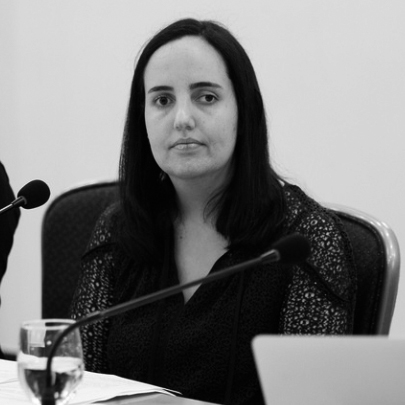
Isabel Erreguerena
Isabel has a degree in Law from the Autonomous Technological Institute of Mexico with special mention and a Master in International Law with specialization in Human Rights from the Washington College of Law of the American University. She is studying a Doctorate in Social Anthropology at the Universidad Iberoamericana. She is currently Coordinator of the public policy area of the feminist organization Equis Justice for Women, focused on promoting access to justice for women. She has worked in public administration institutions such as the National Institute of Access to Public Information, the National Commission of Human Rights and the Permanent Mission of Mexico to the United Nations in New York. She is also a professor of Public International Law at the Faculty of Law of La Salle University and of Public International Law and Human Rights at the Faculty of Law of the Universidad Anáhuac Norte of Mexico City.
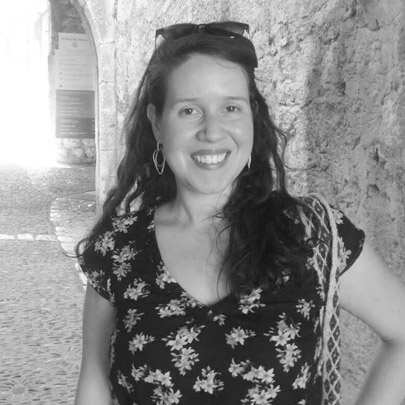
Isabel Pereira Arana
Isabel is a political scientist at the Universidad de los Andes in Colombia (2008) and Magister in Development Studies, with an emphasis on conflict and peacebuilding from the Institute of Higher International and Development Studies of Switzerland – IHEID (2015).
His interest focuses on the impact of drug policies on rural development, public health and armed conflicts. Currently she is the Research Coordinator of the Drug Policy line of the Law, Justice and Society Studies Center (Dejusticia), with special emphasis on access to controlled medicines for palliative care and drug addiction, and implications of the peace process in the drug policies in Colombia. Additionally, Isabel is a member of the Colectivo de Estudios de Drogas y Derecho (CEDD). Previously, Isabel worked as a professional in international cooperation projects for development in conflict zones in Colombia and as an adviser to the national government in multilateral negotiations.
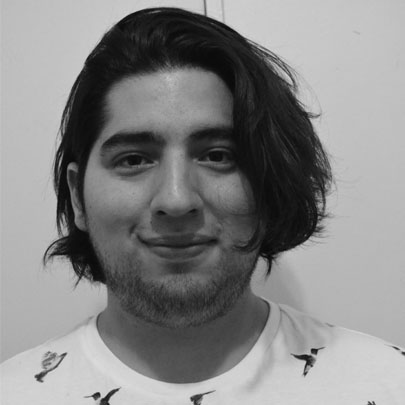
Iván René Moreno Ramírez
Originally from Ciudad Juárez, Chihuahua. Degree in Sociology from UACJ, with a diploma in Drug Policy from CIDE. Winner of the Young Researchers award in the area of Social Sciences. He currently works with children victims of violence through a music education project.
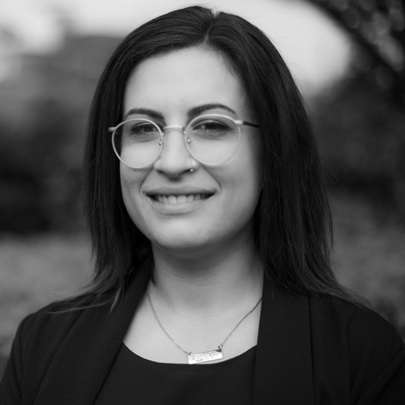
Jenna Valleriani
Is a Post Doctoral fellow at the BC Centre on Substance Use and the Faculty of Medicine at the University of British Columbia. Studying cannabis policy and vulnerable populations in Canada for over seven years, her current research looks at community based cannabis substitution programs and the instrumental uses of cannabis among people who use drugs. Jenna is on the board for the National Institute of Cannabis Health and Education, and a Strategic Advisor for Canadian Students for Sensible Drug Policy. She was invited as an expert witness to the Senate of Canada regarding the impact of Bill C-45, The Cannabis Act, on young people in May 2018. She is engaged in local, provincial and international policy development, most recently working with Antigua and Barbuda on medical cannabis policy, and her public commentary on cannabis policy in Canada has been featured in national and international media outlets.
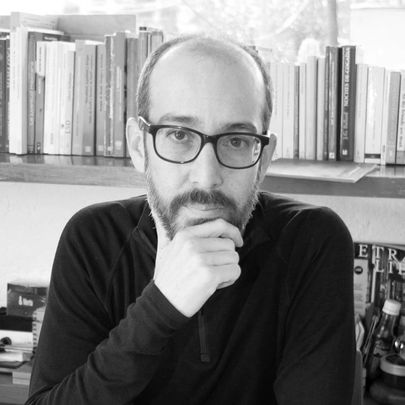
Jorge Hernández Tinajero
Jorge is a political scientist and internationalist by the National Autonomous University of Mexico. He has specialized in drug policies, international substance control system, risk and harm reduction, substance analysis, cannabis and poppy policies, as well as in human rights. He is a founding partner of the Mexican Association of Cannabis Studies, since 2004. From 2008 to 2014 he was President and Executive Director of the Collective for an Integral Policy Toward Drugs. He has made different publications individually and jointly as “Legal or illegal, it makes me equal (2017)”, Cannabis in Latin America and the Caribbean: reserved forecast (2016), “The time of law” (2015), and others.
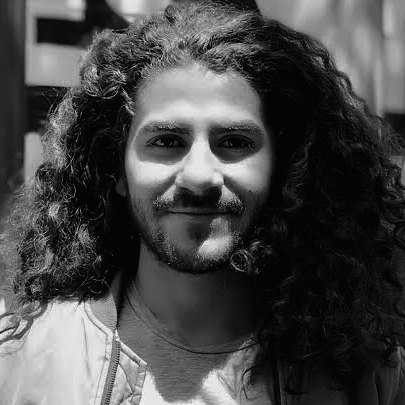
Jorge Herrera
Jorge Herrera is an internationalist by the Tecnológico de Monterrey, and a Social Worker by UNAM. He is a defender of rights and promoter of freedoms. He is a founding member of the Ágora Mexico movement, which encourages citizen participation among the youth. He currently co-chairs Dilo Inclusive Schools, working to implement inclusive policies for the LGBT community in schools, and is a co-founder of the RIA Institute, which seeks to make drug policies more realistic with social needs, and that these are framed under a framework of social justice.
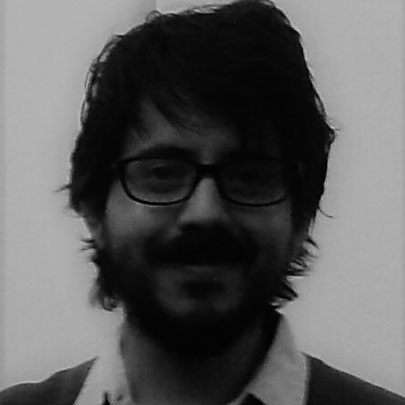
Juan Camilo Pantoja García
Master in Political Science from The College of Mexico and historian from the National University of Colombia, Bogotá. He is currently a doctoral student in history at The College of Mexico. His line of work is related to the consequences of violence, both political and criminal, in the construction processes, both nationally and subnationally. In recent years, he has published various articles on criminal violence in Guerrero and the strategies that civil society and government institutions have been implemented or proposed to reduce violence in the state.
Juana Quispe Ari
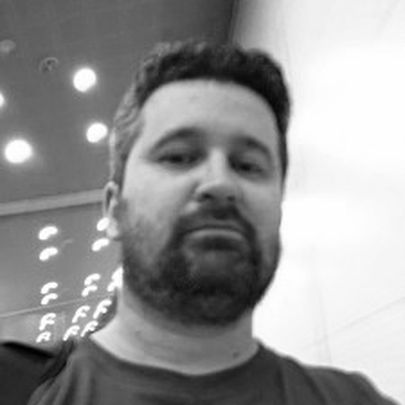
Julián Quintero
Julián is a sociologist from the National University of Colombia with a Masters in Social Studies of Science and Technology at the University of Salamanca.
He is director of the ATS Corporation with emphasis on Mitigation and Risk Reduction and harm in SPA consumption.
In recent years he has introduced with his organization the programs of access to hygienic material of injection in three cities, the services of analysis of substances for public health from the project of intervention in risk reduction and damages as www.echelecabeza.com. They are pioneers in Colombia in the approach to the consumption of base paste from the reduction of risk and damage and the study for the design of lower risk paraphernalia, projects related to cannabis as an alternative to the treatment of basuco consumption.
In May 2018, he published with other researchers the “Prospective and Anticipatory Public Policy Study for the regulation of the Cocaine Recreational market for the year 2034“, marking a route for the regulation of this market in the world.
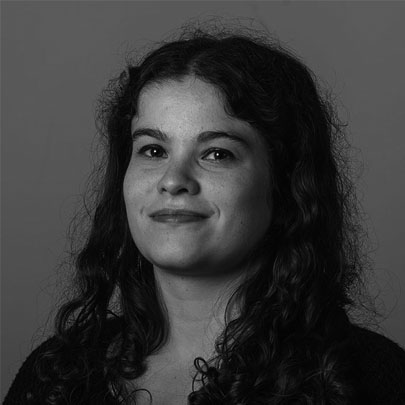
Juliana Miranda
Juliana has a degree in Sociology from the University of Buenos Aires (UBA), a diploma in Civil Society Organizations from FLACSO Argentina and a master’s degree in Criminology from the Universidad Nacional del Litoral (UNL). Since 2014 she is a researcher in the Justice and Security Area of the Center for Legal and Social Studies (CELS), where she works on issues of police violence and the use of force, production of information, criminal statistics and violence against women. Her latest research work deals with the militarization of security within the framework of the War on Drugs in Latin America and its impact on human rights.

Lázaro Cárdenas Batel
Former governor of Michoacán, Mexico. He was a member of the Board of Directors of WOLA. He has also been a senator in Mexico, an academic at the Woodrow Wilson Center, and has conducted election observation missions for the Organization of American States (OAS).
Currently, he is coordinator of Advisors of the Presidency of Andrés Manuel López Obrador.
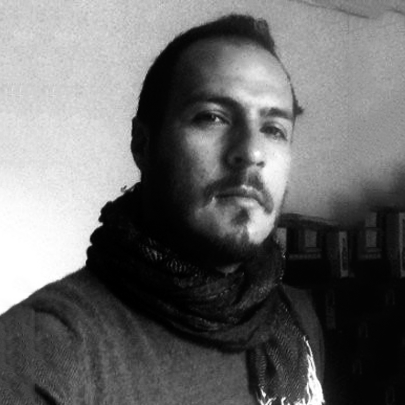
Levinson H. Niño Leal
Anthropologist, specialist in Analysis of Public Policies of the National University of Colombia and photographer.
His work has been developed within the framework of critical medical anthropology and qualitative research. He has developed research on topics such as food anthropology, armed conflict and health systems. However, his main work has focused on ethnographic interventions on the situation of psychoactive substance use and on the analysis of drug policies. Recently, he has been carrying out work with consumers of basuco to advance a baseline of this situation that allows for their mobilization in the Colombian national debate on SPA.
He works as a researcher in the University Foundation of Health Sciences in projects on intercultural health and development of health models. He is a researcher and member of the IDEAC Corporation, a non-governmental organization focused on community work and overcoming diverse vulnerability conditions.
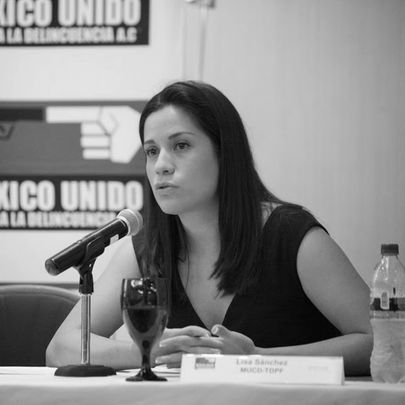
Lisa Sánchez
Lisa has a degree in International Relations from the Tecnológico de Monterrey and the Institute of Political Studies of Paris. Master in Political Science from the Paris I Panthéon Sorbonne University and Master in Public Management and Governance from the London School of Economics.
She is the Executive Director of Mexico United against Crime and former collaborator of the Inter-American Drug Abuse Control Commission of the OAS (CICAD / OAS) and Espolea, A.C.

Lorena Emilia Paredes González
PhD Student and Teacher in Physical Anthropology by the National School of Anthropology and History, Degree in Psychology from the School of Psychology of the UNAM.
Member of Student for Sensible Drug Policy and Research Assistant at the National Institute of Scientific Research of Montreal, Canada, on the young marijuana users in public spaces project in Mexico City, TRYSPACES.
His subjects of interest are social inequality, violence and drug use. Her work focuses on social research and urban community intervention, collaborating in neuroscience, experimental biology and psychiatry laboratories. She has presented at various national and international forums and has been dedicated to scientific dissemination, publishing publications and workshops at all educational levels, collaborating with the Mexican Academy of Sciences and Public Associations, Founder and Member of the Psychocalle Collective.

Lucía Ramírez Bolívar
Lucía is a lawyer specialist in Constitutional Law of the National University of Colombia (2008) and Master in Social Work with emphasis in International Social Work and Poverty and Inequality of the University of Chicago (USA – 2015).
She has worked in research, teaching, litigation and advocacy on human rights – especially in the areas of forced migration and women’s rights – with international cooperation agencies and non-governmental organizations in Colombia and the United States.
She is currently a principal investigator of the Drug Policy line at the Law, Justice and Society Studies Center – Dejusticia.

Luz Piedad Caicedo
Anthropologist, feminist, magister in Interdisciplinary Studies on Development, specialization in Political Science and with a Master’s degree in History. She is the deputy director of the Humanas Corporation – Colombia and one of its founding partners. In Humanas, he has documented cases of sexual violence in Colombia, the Democratic Republic of the Congo and Rwanda. Her research has revolved around identifying the impact of armed conflicts on the lives and safety of women in Colombia; the impact of demobilization of paramilitaries on women in host communities and access to justice for women. In the last four years, her research has revolved around the role played by women in the weakest links in the production and commercialization of psychoactive drugs and the situation of women deprived of liberty accused of drug offenses.
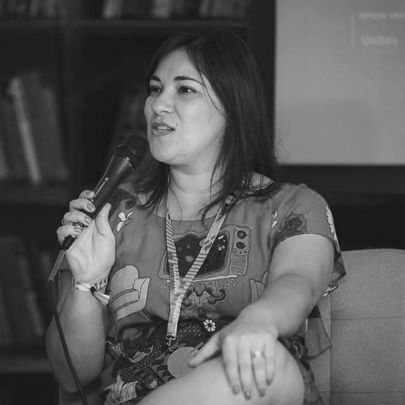
Maria Angélica de Castro Comis
Psychologist, damage reducer and teacher in Sciences. María Angélica is General and Advocacy Coordinator of the Es De Ley Coexistence Center. She worked as a policy advisor on alcohol and drugs of the Municipal Secretariat of Human Rights and Citizenship of the municipality of São Paulo, acting strongly together with the Open Arms program.

María Corina Muskus Toro
Lawyer of the Andrés Bello Catholic University, where after graduating she was professor of the legal clinic of human rights of that university. She also holds a Master’s Degree in Gender and Human Rights from American University Washington College of Law. During her master’s degree, she worked with the former rapporteur on torture, Juan E. Mendez, at the Anti Torture Initiative and later with the Rómulo Gallegos Becaria of the Inter-American Commission on Human Rights. Currently working in the area of National and International advocacy of the Mexican Commission for the Defense and Promotion of Human Rights.

María de Lourdes Angulo Corral
María has a Degree in Public Administration and Political Science from the Autonomous University of Baja California. Founder of the organization Social Integration, Verter A.C. and member of the REDUMEX board of directors.
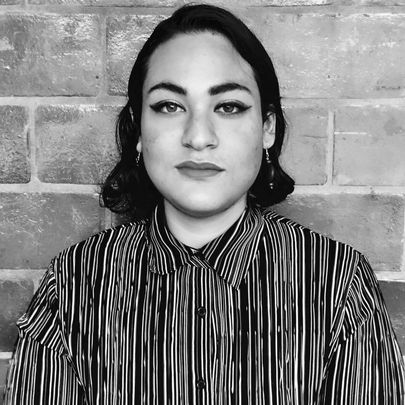
María del Rosario Quirarte Plazola
María is a student of the career of Lawyer in the University of Guadalajara and feminist activist for the Rights of the People. She is a member of the YAAJ GDL and UniDiversidades Civil Associations, which work in defense of the Rights of Women and people of Sexual Diversity.
Speaker and workshop on issues of feminisms and Sexual and Reproductive Rights, has various courses, research stays and seminars on public policy, as well as diplomas ranging from Topics such as the Defense of Victims of Torture, taught by the Institute of Procedural Justice Criminal to a Diploma in Bioethics and Law from the Institute of Legal Research of the National Autonomous University of Mexico.
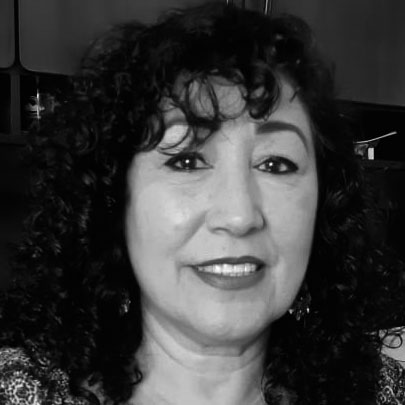
Maria Elena Ramos Rodríguez
Social Worker graduated in 1981 from the Autonomous University of Ciudad Juárez (UACJ); she completed two specialties at the Latin American Center for Social Work (CELATS) in Lima, Peru: “Social Management for Welfare Programs” (1993) and “Community Health and Promotion of Development” (1994). In the professional field, she has focused on HIV / AIDS care, prevention and research; is a pioneer, in working with people who inject drugs. She has been: Member of CONASIDA, member of the Country Coordinating Mechanism (MCPMEX), which managed the project for Mexico to the Global Fund “Strengthening national strategies for prevention and harm reduction, directed to HSH HSH / TS and IDUs “. She was a member of the first Board of Directors of the Chihuahuan Women’s Institute (ICHIMU) during the administration of Mr. José Reyes Baeza, also acted as Citizen Counselor of the State Commission of Human Rights during the period 2011 – 2014. Currently, she is a member of the Council to Guarantee the Right of Women to a Life Free of Violence, as well as a representative of civil society in the Board of Directors of the Chihuahuan Women’s Institute.
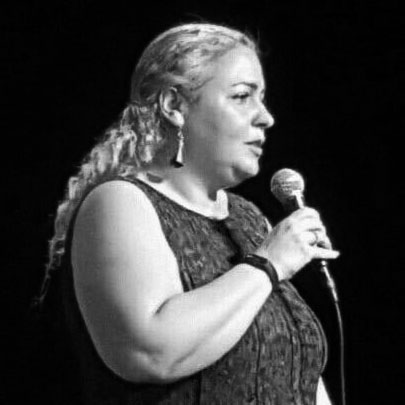
María Esther Carbuccia
Clinical Psychologist, graduated from the Catholic University Santo Domingo, integrated for more than 14 years to social work with vulnerable populations such as People Living with HIV / AIDS, Sex Workers, GLBTIQ Population, Trafficked Persons and Trafficking, Victims of Violence, Sexual Exploitation of Children, among others. Extensive work on issues related to Health in General, especially Sexual and Reproductive Health, Gender and Domestic Violence, Assistance to Victims of Trafficking and Trafficking, and Drug Users. Likewise, she plays the role of Facilitator of said institution.
Currently in the Center for Guidance and Integral Research (COIN), she is Project Coordinator in the areas of Drug Users, Trafficked Persons and Trafficking and People with Disabilities. She has experience in the elaboration of didactic materials, among them: the “Manual of Approach to the Use of Drugs in Key Populations” 2014 and the “2nd. Study on: Drug Use and HIV / AIDS Prevention among High Risk Populations. Situation Analysis” 2017.
María Esther is part of the “Inter-institutional Coordination Roundtable for the Follow-up and Implementation of the 2016 UNGASS Agreements, and other International Consensus, on the World Drug Problem, and the Review of Current Drug Policies in the Dominican Republic”, which seeks to propose changes in the scenario of the country’s drug policies, including the inclusion of harm reduction approaches within the framework of public health and the change of the national legal framework, in order to guarantee the rights of this vulnerable population.
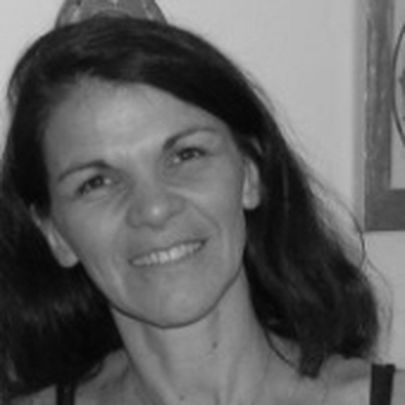
María Pía Pawlowicz
María has a degree in Psychology from the University of Buenos Aires. She is a specialist and Master in Health and Social Sciences, FLACSO-CEDES. She is a researcher of Intercambios Civil Association and a professor of undergraduate and postgraduate and researcher at the Faculty of Psychology of the University of Buenos Aires and the National University of Moreno. Health teams trainer, methodological consultant and author of numerous articles in national and international publications.
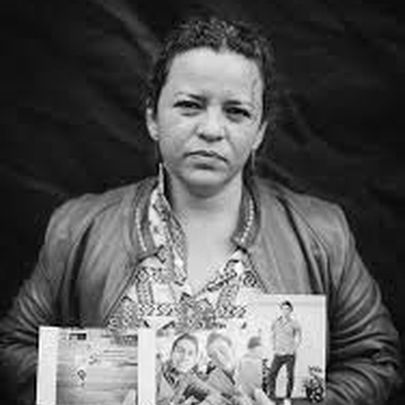
Maricela Orozco Montalvo
Mother of two young people murdered in the context of the war on drugs in Mexico, one of which disappeared for three years. The search for her son led her to join other families of missing persons with which she founded the organization Relatives in Search María Herrera and the National Network of Collectives of relatives of missing persons, the National Links Network. Her work of searching, reporting and social organization has led her to become a human rights defender.
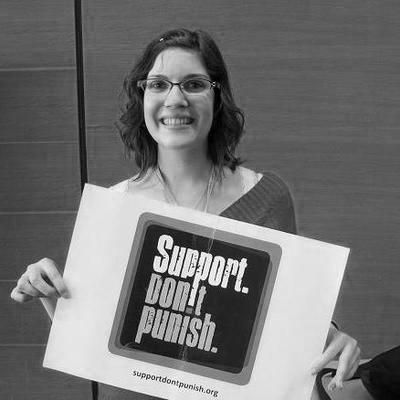
Marie Nougier
Master in international law, human rights and the law of armed conflicts.
She is responsible for the work of communications and publications of the IDPC, active participant in the development of the IDPC network, civil society training activities, and advocacy work, particularly at the UN. Marie also supports IDPC’s activities in Latin America, contributing to the coordination of a project that seeks to reduce the incarceration rate of women for drug-related crimes.
She is part of the Civil Society Forum on drugs of the EU. Before working at the IDPC, Marie worked on issues related to forced drug treatment in Asia at the World Health Organization, as well as immigration, racism and police brutality at Amnesty International.

Miguel Ruiz Cabañas Izquierdo
He is a career diplomat. He joined the Mexican Foreign Service in January 1979 and was appointed Ambassador on June 30, 1998.
He has served as Head of Affairs on Drug Trafficking in the Permanent Mission of Mexico to the United Nations Organization and Head of Social and Humanitarian Affairs (1981-1986); Subsequently, Chief of Migration and Border Affairs of the Mexican Embassy in the United States (1993-1995).
From 2001 to 2004 he served as Permanent Representative of Mexico to the Organization of American States (OAS). He was subsequently appointed Ambassador of Mexico in Japan and, in 2011, as Ambassador of Mexico in Italy and Permanent Representative of Mexico to the International Organizations based in Rome.
On September 16, 2015, he was appointed Assistant Secretary for Multilateral Affairs and Human Rights of the Ministry of Foreign Affairs.
He has lectured at various universities in Argentina, Spain, the United States and Japan. He has also published several articles in specialized publications of universities and research centers in Mexico and the United States, on Mexico-United States Relations, Mexico’s participation in the Organization of American States and the United Nations Organization, the problem of drug trafficking and Security in the American Hemisphere.
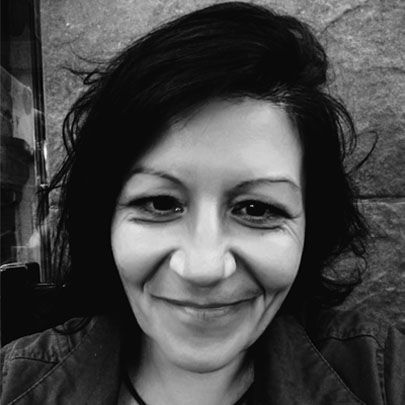
Natacha Lopvet
Natacha has a linguistic training. She writes and works with Equis Justicia para las Mujeres. She left a year and a half ago from the Santa Martha Acatitla prison after serving a 10-year sentence.
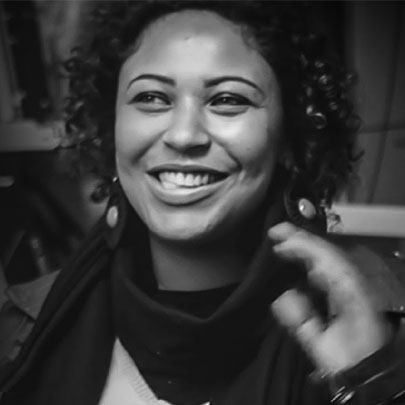
Nathalia Oliveira
Coordinator of the Black Initiative for a New Drug Policy. President of o COMUDA -SP (Municipal Council for the Policy of Alcohol and Drugs of São Paulo). Member of the Executive Secretariat of the Brazilian Platform for Drug Policy. Graduated in Social Sciences by the Escola de Sociologia e Política de São Paulo (FESPSP).
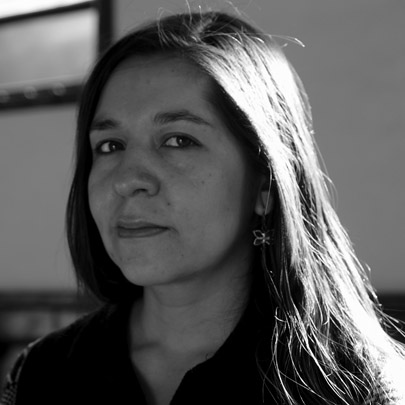
Nidia Olvera
Nidia has a degree in Ethnohistory from the National School of Anthropology and History (ENAH) and a Master in Social Anthropology from the Center for Research and Higher Studies in Social Anthropology (CIESAS). She has focused her research on the historical and anthropological study of the uses, conceptions and prohibitions of psychoactive substances. She is a teacher at the Autonomous University of Mexico City (UACM) and at the ENAH. Currently, Nidia is pursuing a Doctorate in Modern and Contemporary History at the Mora Institute, where she conducts a study in relation to drug control during the 1940s in Mexico City.
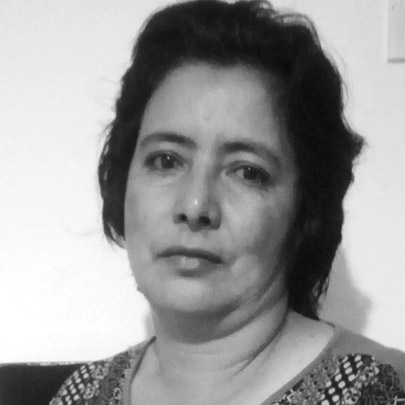
Nidia Quintero
Nidia is a SENA technician in Cooperativism and Field Worker, specializing in medicinal plants. She is the General Secretariat of the National Federation of Unitary Agricultural Unions (FENSUAGRO), an organization that she has been part of since 2004. She was leader of community action committees since 1990 and of peasant organizations since 1997. In 2006 she was part of the founding team of the regional table of social organizations of Putumayo. Within FENSUAGRO, she has held various positions as delegate of the board of directors, secretary of rural women and children and treasurer. In her capacity as agrarian leader, she has been dedicated full-time to the process of representativeness of the peasants at the national and international level.

Nora Robledo Frías
Lawyer with a focus on International Human Rights Law from the Universidad Iberoamericana and Diploma in Drug, Health and Human Rights Policy from CIDE. She has over 8 years of experience in the design, implementation and evaluation of strategies and legal-political tools to guarantee human rights in the region. Since 2015, she has worked in the search for a sensible drug policy as part of the legal team of Elementa, Human Rights Consultancy.

Olga Sánchez Cordero
Born in Mexico City. Olga studied law at the UNAM. She did postgraduate studies in Social Policy and Administration in Great Britain.
She was the first woman Notary by opposition in the then Federal District, now Mexico City, in which she is the holder of the Public Notary Public 182. She served as a full-time magistrate of the Superior Court of Justice of the then Federal District, now Mexico City, 1993 to 1995; as Minister of the Supreme Court of Justice of the Nation from February 1995 to November 2015.
In September 2016, Olga was named Constituent Deputy of Mexico City. Seven times she has been distinguished with the Doctorate Honoris Causa by various universities in the country. She entered the International Hall of Fame of the International Women’s Forum in October 2014; first woman to receive the “Medal of Civic Merit Eduardo Neri and Legislators of 1913” granted by the Chamber of Deputies of the H. Congress of the Union 82014. She has a large number of publications in books and magazines.
In 2017 it was proposed by Andrés Manuel López Obrador to be part of his cabinet, heading the Ministry of the Interior, it is expected that on December 1, 2018 she assume that position.
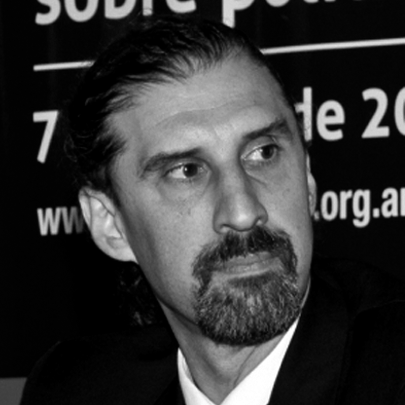
Pablo Cymerman
Degree in Psychology from the University of Buenos Aires. Founder and Coordinator of Institutional Relations Area at Intercambios Civil Association. Teacher and researcher of the Faculty of Social Sciences of the University of Buenos Aires since 1996. Professor of Graduate School of Psychology UBA. He was Founding Member and Executive Coordinator of the Argentina Harm Reduction Network. He was a member of various scientific committees at international conferences and since 2003 is the Coordinator of the Organizing Committee of the Conference on Drug Policy. Consultant and trainer in Human Resources for private organizations, governmental and non-governmental organizations. Team Coordinator of Social Workers and Psychologists holiday camps Government of the City of Buenos Aires between 2002 and 2006. Author of numerous national and international publications on HIV / AIDS and problems associated with drug use.
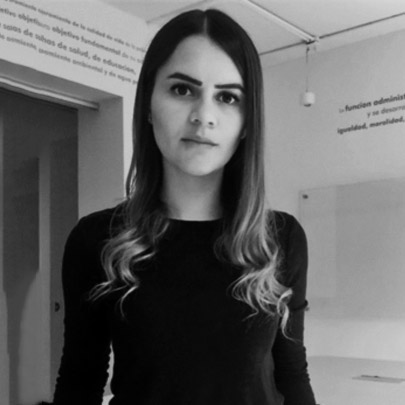
Paula Aguirre
Lawyer from Sergio Arboleda University of Colombia with Diploma in Drug Policy, Health and Human Rights from CIDE, Mexico. Professionally, she did internships at the Human Rights Clinic of his University, analyzing problems that affect the collective rights of vulnerable populations and at the Rapporteur of the Criminal Cassation Chamber of the Supreme Court of Justice studying sentences with a gender focus. Her areas of expertise are International Human Rights Law, Drug Policy and Economic, Social and Cultural Rights. She is currently a lawyer for Elementa, Consultancy in Rights.
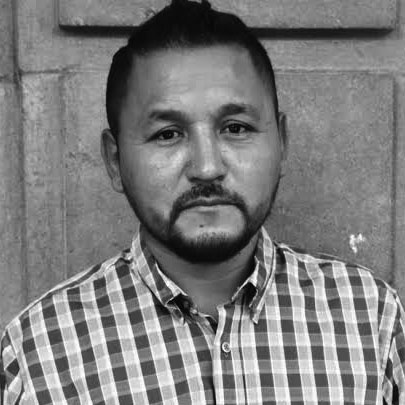
Pedro Cesar Carrizales Becerra
Pedro’s been an activist for more than 15 years accompanying young people through, among other things, self-employment and educational support programs. He worked with people with limited resources in access to housing.
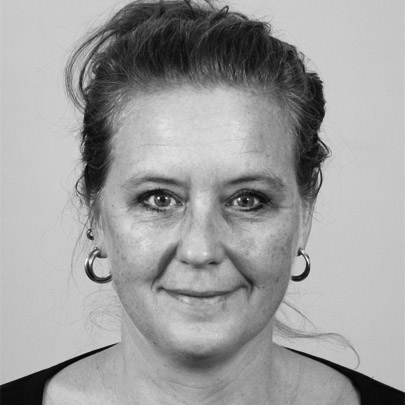
Pien Metaal
Politologist and coordinator of the project on Latin America, part of the Drug and Democracy program of the Transnational Institute (TNI). She has a Master’s Degree in Political Science and International Relations from the University of Amsterdam and has been part of the D & D team since 2002, although his participation with the program began earlier. She lived for several years in Latin America, where spent most of his time in the Andean region. During those years, she devoted herself especially to the research, development and application of drug policies, especially in relation to coca and cocaine, and worked with experts and local and international non-governmental organizations. She has written numerous articles and contributed to several books and publications on drug policy in Latin America since 1996.
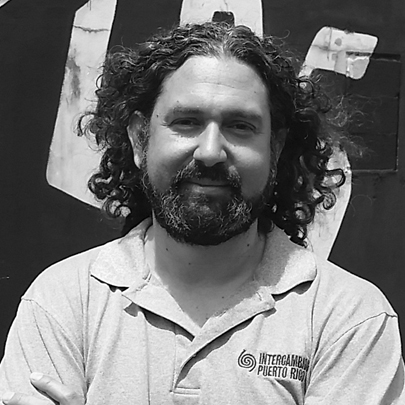
Rafael Torruela
Rafael is a doctorate in Social and Personality Psychology from the Graduate Studies Center of the City University of New York (CUNY).
Scholarship by the National Institute on Drug Use (NIDA) from 2007 to 2011 to complete their pre- and post-doctoral studies on behavioral sciences in drug users at the National Development Research Institute (NDRI) in the city of NY.
Currently, he is the Executive Director of Intercambios Puerto Rico, a community-based organization that offers harm reduction services in the northeast of Puerto Rico and as director of the drug policy reform campaign, Descriminalizacion.org.
He has presented his research in several conferences, published multiple academic articles, participated as a member of the Ethics Review Board of the Center for Graduate Studies of CUNY, was awarded a scholarship by the Interdisciplinary Institute for Research and Training on Drug Abuse in the Hispanic population in the United States (IRTI) and is a member of the board of directors of the New York community-based organization, New York Harm Reduction Educators (NYHRE).
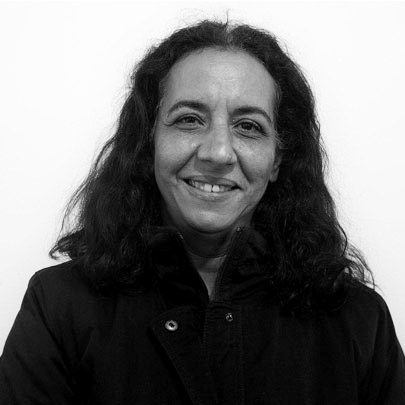
Railda Silva
Railda is a Brazilian social activist, co-founder of Amparar – Association of Relatives and Friends of Prisoners. Since 2006 he has been working together with relatives of people imprisoned both in the socio-educational system (formerly Febem, today the Casa Foundation) and in the prison system against mass incarceration and torture in Brazilian prisons.
Rocío Asturizaga
Rocío is a member of Acción Semilla foundation. Initially she was in charge of the projects area, currently she works as financial administrative chief for the control and execution of the project area as well as for the execution of the research carried out by the Foundation. Rocío is a promoter of alternative therapies with master plants, through the experiences of the community.
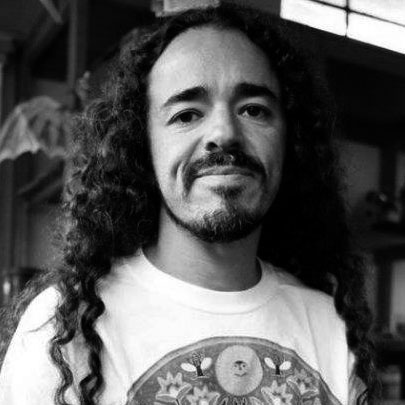
Ruben Albarran
He is a renowned musician and singer, member of the alternative rock band Café Tacvba. Beyond his long career as a musician, for several years he has been involved as a social activist committed to his environment and in different social causes, especially supporting the protection of the sacred area of Wirikuta.
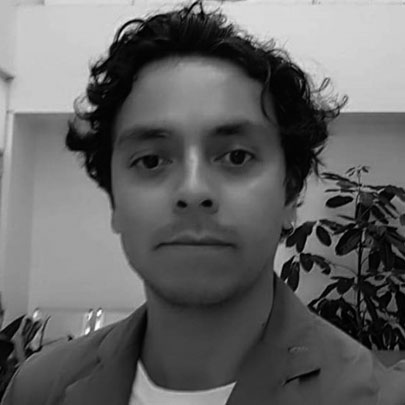
Rubén Carreón Diazconti
Rubén is a Social Anthropologist from the University of Veracruz. Master of Social Sciences from the Colegio de Sonora, Adjunct Lecturer from the College of Public Health of the University of Arizona, Member of the Committee Intervening Walls in Health of the University of Southern California and the National Institute of Psychiatry. He was the coordinator of Phase 4 of the El Cuete binational Project in the City of Tijuana in 2011. During 2012, he coordinated the National Survey of People Injecting Drugs in 3 Cities (Tijuana, Hermosillo and Cd. Juarez) of the Global Fund. Coordinator of the Harm Reduction Program of the HIV / AIDS Program of Mexico City. He is currently Head of Departmental Unit of Specific Programs of the Center for the Prevention and Integral Care of HIV / AIDS of Mexico City and Advisor to the Pulling Corner Project focused on Crack Users of Mexico City.
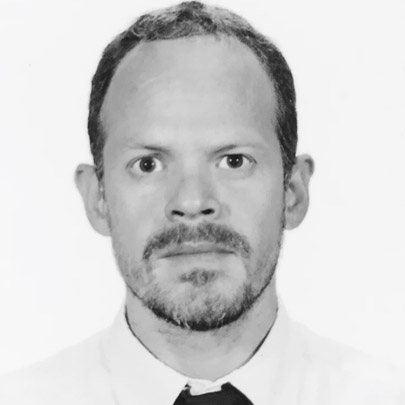
Sebastián Mesén Arias
Criminal lawyer, criminologist, psychoanalyst. Master in Criminology and Criminal Enforcement, from the Autonomous University of Barcelona, Universitat Pompeu Fabra de Barcelona and Universitat de Girona.
Public Defender, Public Defender of Costa Rica, 2009-2018. Professor of the Law Faculty of the University of Costa Rica in the Special Criminal Law Chairs (2004-2010), Legal Research (2010), Research Systems and Legal Reasoning (2013).
Prosecutor of the Public Ministry of Costa Rica, 1998-2009. Lawyer of the Criminal Cassation Chamber of the Supreme Court of Justice of Costa Rica, 2008-2009.
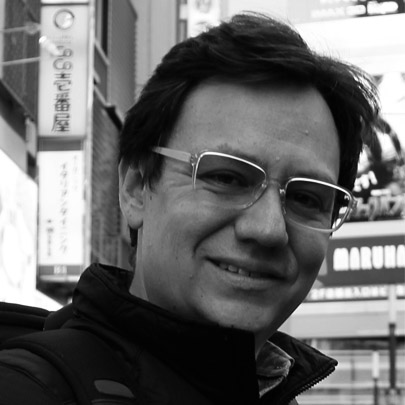
Sergio Guarín
He is the current director of the post-conflict and peace-building area of the Ideas for Peace Foundation (FIP), in Bogotá, Colombia. He was director of the National Network of Development and Peace Programs (Redprodepaz) and the Program of Political Sciences and International Relations at the Technological University of Bolívar in Cartagena – Colombia. He also worked in the National Planning Department in Colombia (national government entity), as head of the “Peace and Development” and “Coexistence and Citizen Security” Groups.
His interest and experience have revolved around the relationship between territorial development and peacebuilding, and the mechanisms of local democracy and institutional strengthening.
Recently, he has worked on projects on the conditions of territorial development that are necessary for the substitution of crops for illicit use and on the mechanisms of citizen participation in the transformation of territorial dynamics.
He is an analyst of the conflict and a blogger on the La Silla Vacía website.

Shaleen Title
Shaleen Title was jointly appointed in 2017 by the Massachusetts governor, treasurer, and attorney general to serve in the social justice seat on the Commission. She has won several awards for her advocacy work and her efforts to bring more women and people of color into drug policy reform and the cannabis industry.
Before her appointment, she co-authored the Massachusetts marijuana legalization referendum and has consulted on state and local marijuana policy around the country. As an attorney specializing in marijuana regulations, she has provided regulatory expertise for leading marijuana consulting firms.
She also served as founder of a women-led recruiting firm and as a founding board member of the Minority Cannabis Business Association, where she led the drafting of the first model bill created to give states guidance to implement a process of reinvestment and reconciliation. She previously served on the national boards of Students for Sensible Drug Policy, Marijuana Majority, the Cannabis Law and Family Alliance, and the National Lawyers Guild.
Commissioner Title holds a business degree, law degree, and Master’s degree from the University of Illinois and was previously a consultant at Deloitte.
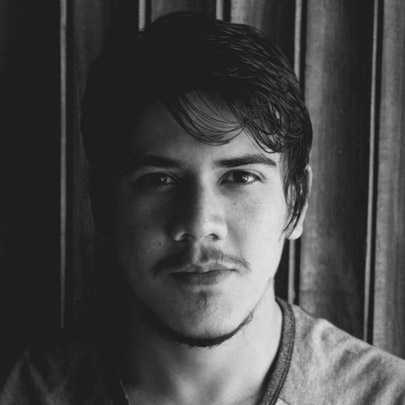
Shankar Stwart Syed Mora
He is currently enrolled in the Bachelor and Bachelor of Anthropology with sociocultural emphasis of the University of Costa Rica. In 2017, he was named Audiovisual Producer of the Cultural Identity, Art and Technology Program of the National University of Costa Rica. He is currently project manager in the Office of Social Development of the Municipality of Montes de Oca. He made his first Ethnography entitled “Between residents and operators: dynamics around a rehabilitation center for women with addiction to psychoactive substances” between 2016 and 2017. At the beginning of 2018 he carried out a project of Management of Cultural Heritage of the Office of Culture of the Municipality of Dota. He has research experience in sociocultural studies, cultural heritage, psychoactive substances, audiovisual anthropology, peasantry, urban planning and young populations.
Responsible for the risk and damage reduction project called “Safe Consumption Campaign in San Pedro”, one of the first formal projects to be carried out from the institutional level (local government) and the young population of the country.

Tania Ramírez
Tania has a degree in Law from CIDE and Degree in Political Science and Public Administration from UNAM.
She is Director of the Drug Policy Program of MUCD. She is a Master of Law with a specialization in “Global Health Law” from Georgetown University. Throughout his professional career he has worked with drug policy, addressing issues such as the operation of the addiction treatment courts in Mexico and Latin America, the consequences of the war on drugs in legislation, and the regulation of tobacco, among others.

Yuritzia López Gómez
She is a surgeon by the Autonomous University of Guerrero. In the first semester of 2018, she was a candidate for local deputy for district 19 in Guerrero. During her campaign she actively promoted the regulation of the poppy. Since 2014 she has held various positions in the Public Security Secretariat of the state of Guerrero. She is currently a physician in the State Center for Measures for Adolescents within said institution.

Zara Snapp
Zara has a degree in Political Science from the University of Colorado in Denver, and a Master in Public Policy from Harvard University, where she received a full scholarship.
Co-founder of Instituto RIA, adviser of ReverdeSer Colectivo, and international advisor with Acción Técnica Social (Colombia). Zara does research and advocacy on innovations in drug policies and takes its work to international organizations and forums such as the United Nations and the Organization of American States. He was part of the Secretariat of the Global Commission on Drug Policies, where he focused on strategy in Latin America, and UNGASS 2016.
She is a referent at national and regional level, frequently writing and giving presentations on innovative public policies for the regulation of psychoactive substances, from a human rights and development perspective and under a framework of social justice. Drug Dictionary author, published by Ediciones B in 2015.